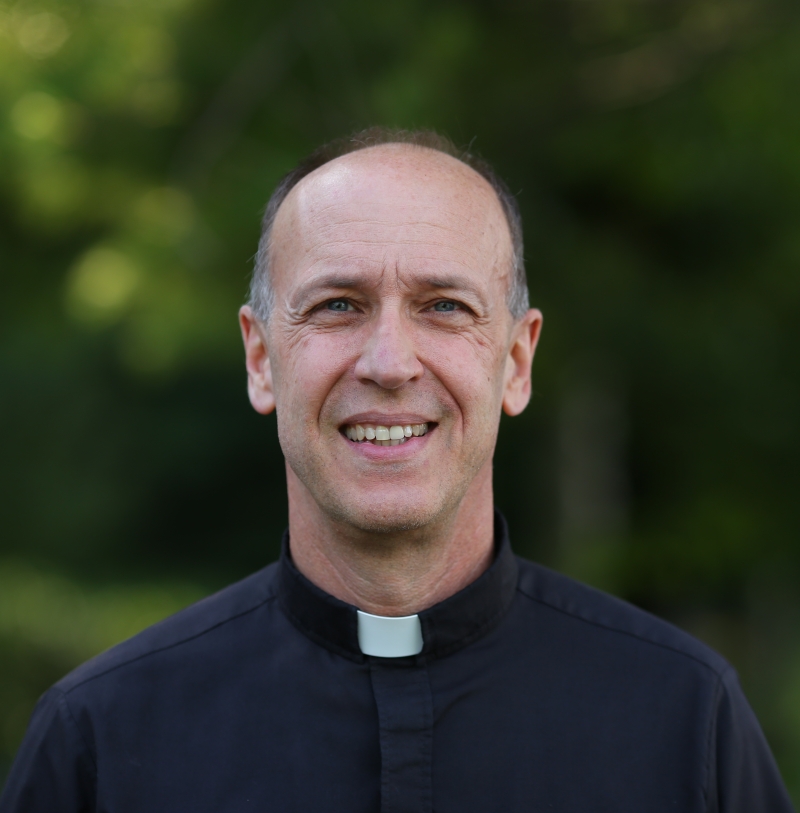
FAITH, SUPERSTITION AND MAGICAL THINKING
Rev. Jeffrey Lucas
06/02/2020
MEADVILLE — Our faith touches the deepest areas of our heart and soul, elevating and strengthening our gifts. It also sheds light on our responses to God and the supernatural world that stand in need of purification and correction.
Over the centuries, people of good will have drifted into superstitious thinking and practices which can border on presumption and a magical view of the things of faith. These need to be purified.

of Meadville Contributed photo
The church is aware that this can apply even to the sacraments. The International Theological Commission under the Congregation for the Doctrine of the Faith just a few months ago lamented that: “The anointing of the sick is also often experienced surrounded by magical elements, as if it were a kind of spell invoking a miraculous intervention of God or of the divine Spirit, without a personal relationship with Christ, Savior of the person, both of his body and of his soul.”i We are certain in faith that God heals and comes to the aid of our souls in this sacrament. We hope in faith that God also will bring healing to our body in this sacrament. However, it is not magic: God does what he wills.
The reactions of some Catholics to the reasonable and prudent guidance of the bishops through the COVID-19 pandemic reveal some interesting instances of superstitious, magical and presumptuous thinking.
“God would not let anything happen to us when we use holy water or receive Holy Communion as we always have done.”
“If we gather in large crowds in order to go to church, God will protect us.”
These are about equivalent to thinking, “I am God’s son or daughter and he would never let anything bad happen to me if I walk across a four-lane highway, blind folded.” This kind of thinking violates prudence and common sense. God could do such a thing. But it is against his will to be tested and presumed upon this way; he won’t do it.
The same applies to coronavirus pandemic.
I mentioned in a sermon not long ago, “St. Teresa of Avila tells us demons flee from holy water. Unfortunately, germs are not similarly affected.” It is reasonable to avoid using public holy water fonts in this pandemic involving a highly contagious virus which, at present, we know little about. It is reasonable to be cautious about the manner of receiving Holy Communion during this pandemic as well. It is not a sign of faith to ignore the elementary findings of science, like germ theory.
This superstitious and presumptuous thinking also shows up in the search for visions and revelations or in building our faith on them instead of the Word of God. St. John of the Cross, a doctor of the church and one of her greatest mystics, warned against this.
“I consider, however, that the desire to know things by supernatural means is much worse than the desire for other spiritual favours pertaining to the senses; for I cannot see how the soul that desires them can fail to commit, at the least, venial sin... For there is no necessity for any of these things, since the soul has its natural reason and the doctrine and law of the Gospel, which are quite sufficient for its guidance, and there is no difficulty or necessity that cannot be solved and remedied by these means, which are very pleasing to God and of great profit to souls; and such great use must we make of our reason and of Gospel doctrine that, if certain things be told us supernaturally, whether at our desire or no, we must receive only that which is in clear conformity with reason and Gospel law. And then we must receive it, not because it is revelation, but because it is reasonable, and not allow ourselves to be influenced by the fact that it has been revealed.”ii
It is understandable that we want to have the cherished means God has given us to commune with him back as soon as possible. However, we cannot fall into magical thinking and presumption to do so.
[i] The Reciprocity Between Faith and Sacraments in the Sacramental Economy, #14
[ii] [Ascent of Mt. Carmel, II,21,4] bold and underlining added
-
